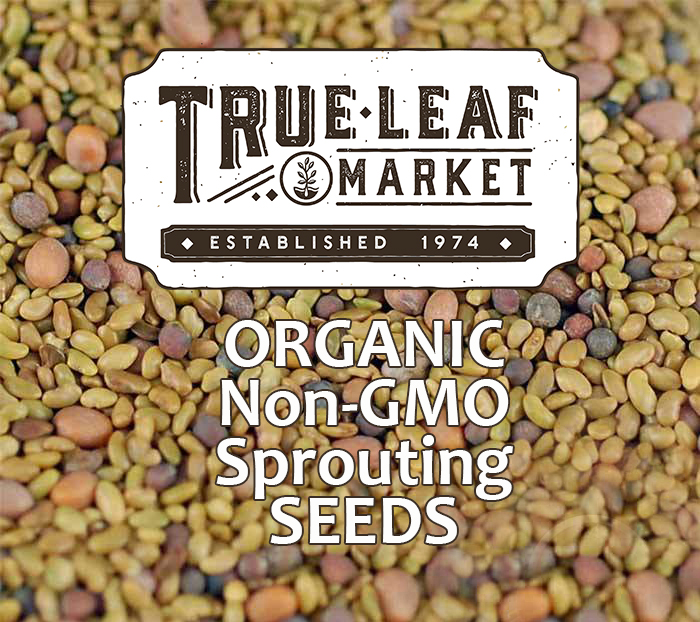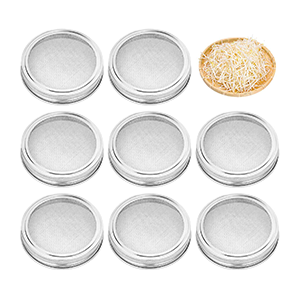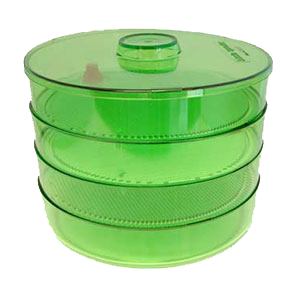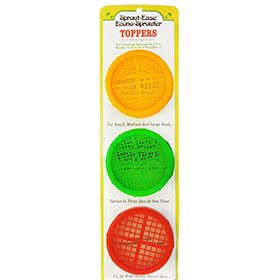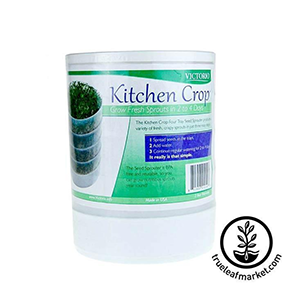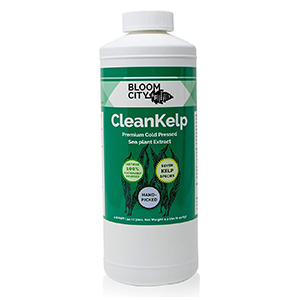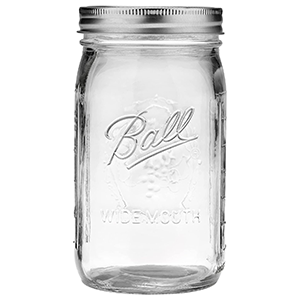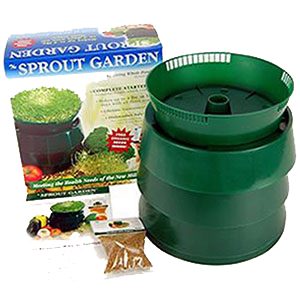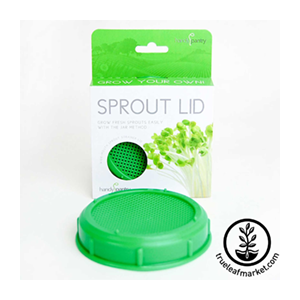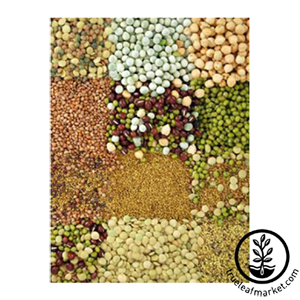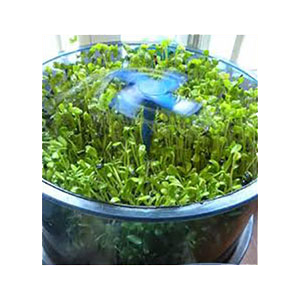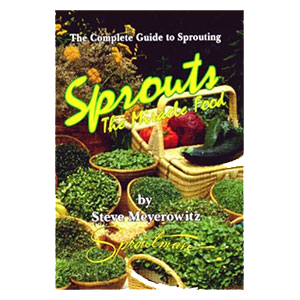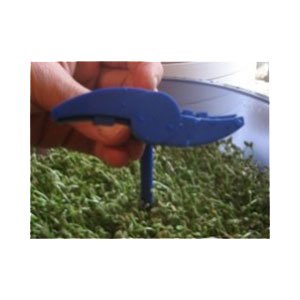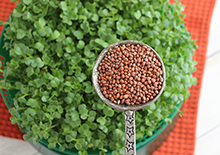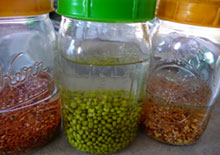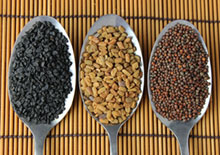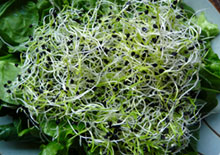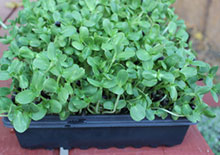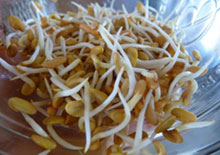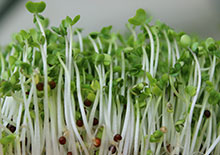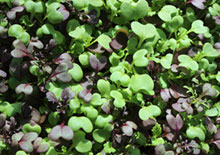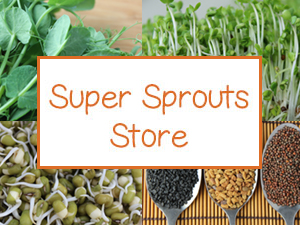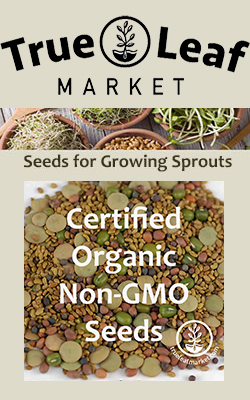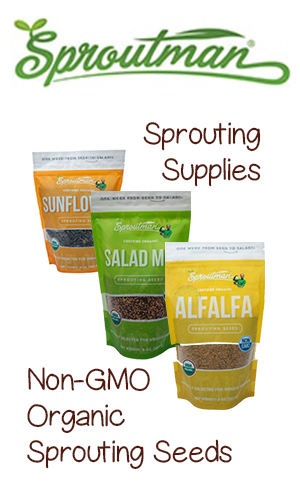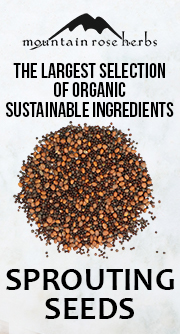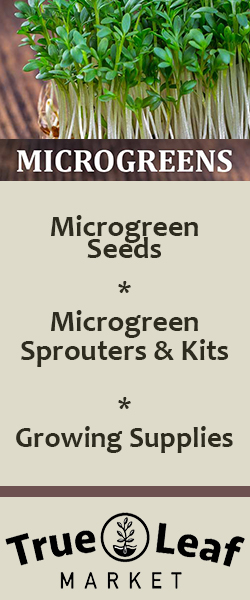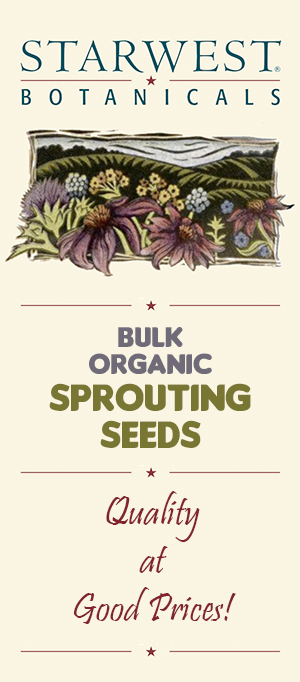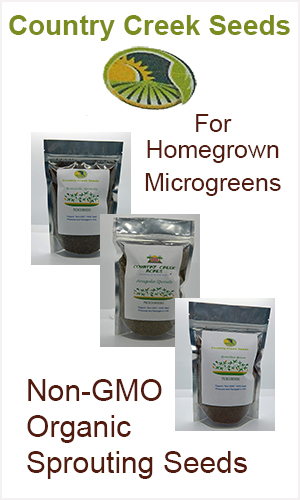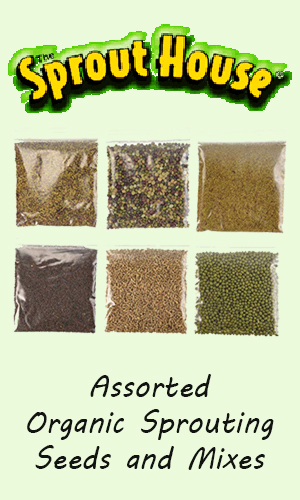- Home
- Super Sprouts
- Sprouts and Food Safety
Sprouts and Food Safety, Do They Contain Toxins?
Intro | Using Organic Seeds | About Seed Sanitization | Natural Sprout Toxins | About Phytoestrogens | Where to Buy | Precautions | Shop
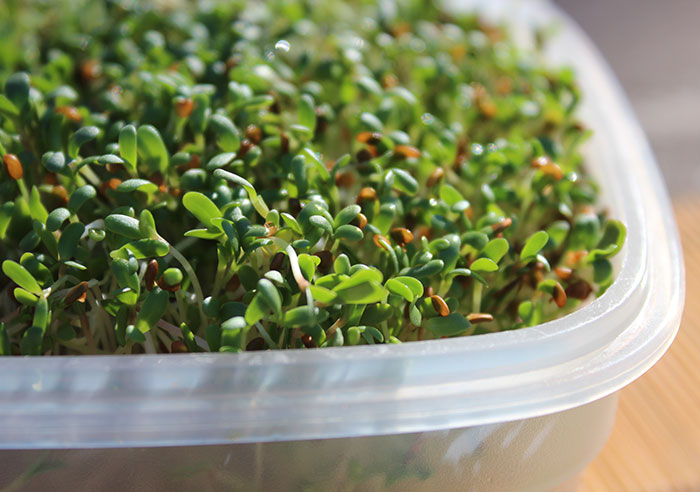
Sprouts consumed from sprouting seeds have received a lot of negative media attention regarding their safety for human consumption.
This controversy started way back in the mid to late 1990's when the U.S. Food and Drug Administration issued a warning to the general public not to consume raw sprouts because of reported contamination of pathogenic bacteria, chiefly Salmonella and Escherichia coli.
This was a result of a multi-state outbreak of E. coli infections that occurred in the United States from the human intake of alfalfa sprouts.
Table of Contents
Intro | Using Organic Seeds | About Seed Sanitization | Natural Sprout Toxins | About Phytoestrogens | Where to Buy | Precautions | Shop
It was later discovered that the actual seeds themselves were the source of contamination and "traced back to one common lot harvested in Idaho." (*) Apparently, when contaminated seeds are used, the sprout incubation process can further multiply these toxic substances.
Both Salmonella and E. coli are pathogenic strains of bacterium that are mainly transferred to foods through small particles of fecal matter that usually come from domesticated livestock or fertilizers used on seed-producing crops.
These seeds, especially alfalfa and clover, are not necessarily intended to be used to grow sprouts but are, according to the FDA, frequently utilized to grow the plant as an "agricultural commodity."
Using Organic Seeds is Better for Sprouting Purposes
Many small scale organic sprout companies have made disputes over the years that these pathogens exclusively infect non-organic conventionally grown seeds which have a different set of criteria for using cow-based manure on food crops.
These business' argue that organic alfalfa seeds have never been associated
with foodborne illnesses and that this is solely a result of traditional
large scale commercial cultivation methods. (Source)
According to the Organic Farming Research Foundation, "Organic standards set strict guidelines on manure use in organic farming: either it must be first composted, or it must be applied at least 90 days before harvest, which allows ample time for microbial breakdown of pathogens." (*)
From our personal experience growing and consuming many different sprout varieties for over 25 years, we have never once observed any type of food poisoning or gastrointestinal sickness after eating sprouts. We always use high-quality organic sprouting seeds and do not use any kind of animal-based fertilizer to grow microgreens or other tray sprouts that require a soil medium.
About Seed Sanitization
In response to foodborne illnesses associated with raw sprout consumption, the FDA began to advise a seed disinfection treatment using chlorine bleach, a known carcinogen, which kills all bacteria but also makes the seed less viable for sprouting.
Today, most high quality sprouting seeds that are "certified organic" are not bleached but tested for pathogenic microbes before the sprouting process. This is done just as a precautionary measure to ensure public safety and alleviate any consumer apprehensions.
Some commercial and home-based sprout growers also add vinegar, food-grade hydrogen peroxide or grapefruit seed extract to the water when soaking or rinsing the seeds, a technique you may wish to employ if you have concerns about this issue.
Again, organic seeds sold for sprouting purposes are considered the best for healthy pathogen-free sprouts.

Don't Some Sprouts Contain Natural Toxins?
Yes, some seeds before sprouting contain natural toxins. The top three most commonly researched and discussed among health-conscious sprout growers are:
- Canavanine
- Fagopyrin
- Lectins
This includes, for example, the canavanine in alfalfa sprouts, the fagopyrin in buckwheat and the lectin in pea shoots and other legumes, like mung bean.
These components, however, are considerably less present in the sprout than the ungerminated seed. In other words, you would have to eat major quantities of them or juice a large tray's worth to potentially feel negative outcomes.
Fagopyrin in Buckwheat Sprouts
The hard, outer shell of buckwheat contains fagopyrin, a toxin known to cause hypersensitivity to sunlight and may cause skin redness or itchiness.
However, a small amount every day for a week or more is most likely not going to affect the average person. Buckwheat is a delicious tasting sprout with many nutritive qualities, it just shouldn't become a regular part of your diet, especially if you are particularly sensitive or have a fair complexion.
Generally, we tend to consume lesser amounts of buckwheat and legume types, enjoying them on occasion, but not on a regular basis.
Lectins in Legume Sprouts
Legumes like peas, lentils or mung beans typically have fewer lectins than other harder beans, like garbanzos, black beans and pinto beans which, in our opinion, should never be sprouted or eaten in their raw state.
Most all beans should be cooked and preferably fermented, like tempeh, to decrease lectin content. Lectins are known to cause gastrointestinal discomfort such as gas, diarrhea, nausea and bloating.
While lectin content is substantially reduced when peas, lentils, and mung beans are rinsed and sprouted, there is still some of the antinutrients present.
Canavanine in Alfalfa Sprouts
The canavanine present in alfalfa seeds, and to a small degree the sprouts, has received a lot of negative attention in recent years essentially scaring concerned individuals away from eating alfalfa sprouts. This was largely the result of one study conducted in which high doses of ground alfalfa seed were given to monkeys, with results that indicated the occurrence of the autoimmune disease referred to as lupus.
This condition was, again, report when consuming the seeds only. The amount of canavanine in alfalfa "sprouts" is significantly less compared to the actual "seed", which mostly serves as a growth inhibitor and a defense against natural predators.
When the seed is sprouted much of the canavanine is neutralized because it is no longer needed to protect the seed. For more information on this subject please visit our alfalfa sprouts page section on L-canavanine.
What About Phytoestrogens?
All sprouts contain some degree of phytoestrogens, but typically they are found in higher quantities in alfalfa, clover, pea shoots and fenugreek sprouts.
These plant estrogens can be helpful or harmful to the endocrine system depending on one's state of health and the amount consumed. It is something to keep in mind if you are seeking to increase or decrease dietary estrogen.
Also, it has been shown in limited research that phytoestrogens, when consumed in large quantities (not usually the case with sprouts), can actually block estrogen's effects.
Where to Buy Sprouting Seeds
Use this link to buy the best quality seeds at some of the lowest prices available. These seeds are organic and quality tested for germination rate, purity and pathogenic microbes. To ensure freshness and viability we always purchase seeds in sealed bags.
For cost-effectiveness, seeds by the pound can be much more affordable than smaller quantities. Bags of seeds are easy to store, don't take up much space, and when sprouted make an excellent survival food, next to wild edible greens, supplying pounds of fresh living produce for pennies on the dollar.
Precautions:
When sprouts are grown inappropriately they can be contaminated with mold, which is especially detrimental to those with mold allergies. It is important to purchase commercially grown sprouts from a trusted organic source that takes precautionary steps to guard against mold and/or uses organically grown seeds to prevent potential Salmonella and E. coli contamination.
Shop Related Products (About Affiliates & Amazon Associate Paid Links)
Affiliate Disclaimer: This section contains affiliate product links. If you make a purchase through our recommended links, we receive a small commission at no additional cost to you. Thanks for the support.

